Today’s readings
Today we have set before us two tables. One is the incredibly rich banquet of wisdom, and the other… let’s call it the fast food of foolishness, I guess. What we need to ask ourselves today is, at which table have we been eating, and is that where we want to find our nourishment?
We see in today’s first reading the personification of wisdom. Wisdom is seen as a female character who has made preparations for a luxurious meal. Meat has been prepared, and that was a luxury in biblical times. Wine has been mixed, probably with spices to improve its flavor and make it a bit more potent. But the invitation has gone out not to the rich and powerful, but the simple and those who lack understanding. These are the ones who are called to the banquet of wisdom to partake of this incredible meal. They will feast on the rich meat of understanding and be carried away by the potency of the wine of enlightenment. But coming to that table requires turning away from foolishness, and it is only by doing so and eating at this table that one can live.
The second reading, too, speaks of this choice, but with a tone of warning: be sure to live not as foolish persons but as wise – watch carefully, St. Paul warns, how you live. He acknowledges that the days in which the Ephesians were living were evil ones, something to which, I think, every generation can relate – no generation ever fails to experience evil in some way at some time. Certainly we have seen that in the past few weeks with the return of clergy sexual abuse scandals, a sadness and humiliation for all who strive to follow the Gospel in the Catholic Church. And so, to combat evil, they – and we – are warned to aspire to right conduct. Certainly, we are unable to fix all the evil in the world on our own, but we can control what goes on in us. We need to eradicate every source of evil in every aspect of our lives so that evil won’t have a feedbed on which to thrive.
Saint Paul calls us to try to understand the will of God, the project of all our lives. Don’t live in drunkenness, he warns, whether caused by wine or just by immersing oneself into the foolishness of the world around you. Instead, we are called to be people of prayer, following God’s will, singing God’s praise, “giving thanks always and for everything.” The word thanks here is, in Greek, eucharisteo, of course, meaning we are to live as Eucharistic people, aware of God’s blessings, and thankful for the grace we have received.
All of this serves as a fitting prelude to the choice Jesus’ audience is facing in today’s Gospel. They have been mesmerized by the feeding of the multitudes that we heard about a few weeks ago, as we began our little immersion in the “Bread of Life Discourse” which is the sixth chapter of John’s Gospel. And they have been hanging in there as Jesus has unpacked the meaning of that event in the time that has followed. But now, they have to come to terms with all of it. Many are repulsed, understandably, I think, at the notion of eating the flesh and drinking the blood of another person. And so now they have to decide if this is something they can live with. Next week, in the Gospel, we will see how that shakes out. But ironically, as we now know, this is something they – and we – cannot live without.
As we come to worship today, we have been dining at one of the other of the tables ourselves. Have we been dining at the table of foolishness? Have we tried living by mere human wisdom; put our security and trust in material things; relied on temporary and superficial appearances and even put off feeding our spirits to another time? Have we surfed the web to find wisdom, and gotten bogged down in the nonsense that lurks there? Have we glued ourselves to television and hung on the words of politicians or other experts whose expertise is questionable at best, or been lost in the banal world of reality TV? Those of us who are well educated may have thought book learning would give us answers to life’s imponderables. Perhaps the results have left us still hungry; like trying to fill our stomachs eating lettuce soup. We may feel some initial satisfaction, but it soon passes and all we can think of is where we can find food. We have been dining at the wrong table.
And so wisdom calls out to us simple ones to pull up a chair to the right banquet. Feasting on the richness of wisdom leads us inevitably to the banquet of the Lord. Will we be repulsed at the idea of eating the flesh and blood of our Lord, or will we set aside the so-called wisdom of the world and embrace the real wisdom of God, which is so far beyond our understanding? Jesus says to us today that we can become part of God, indeed that is the whole point. We were created to become part of God’s life, to be caught up in him, and to be part of him. But the problem is, our dining on the fast food of foolishness, the so-called “wisdom” of this world, has left us sinful and sorrowful, with an emptiness that cannot be filled up in that way.
And so God did the only thing he could do. If we could not be part of him because of our foolishness, he decided to become part of us. He sent his son Jesus into our world to walk among us, to live our life, to walk on the earth as we do. Jesus ultimately gave himself for us, offering his body and blood for our salvation, giving us this great nourishment so that he could become part of us in a similar way to the way all food becomes part of us. As we dine at the table of the Lord, our God who wanted us to become part of him becomes part of us, and so we are caught up again into his life as we were always supposed to have been.
Jesus fed several thousand people with five loaves and two fish a few weeks ago. But that was nothing. It was a mere drop in the bucket compared to what he wants to do now. Now he wants to give himself so that we can be one with him:
For my flesh is true food,
and my blood is true drink.
Whoever eats my flesh and drinks my blood
remains in me and I in him.
People who content themselves in eating the food of this world – even if it’s manna from heaven – will still die. But those – and only those – who eat the bread that is Jesus will live forever. That’s what Jesus tells us today. Because it is only by Jesus becoming part of us that we can become part of God, which is the fulfillment of our destiny as creatures of our God. This is a hard teaching, and we may struggle with it in the same way the crowds struggled with it when Jesus said it. But this is Truth; this is the wisdom of God; this is the way we get filled up so that we never hunger again.
And so which table will we choose now? Please God let us follow the Psalmist’s advice: Taste and see the goodness of the Lord!
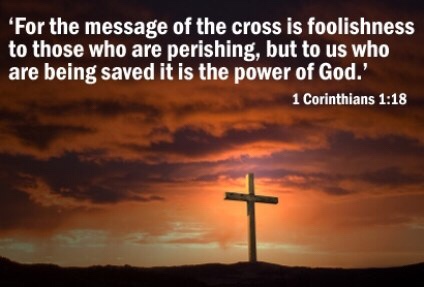
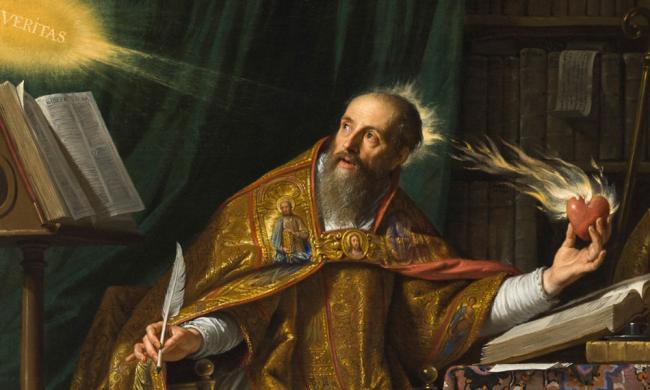
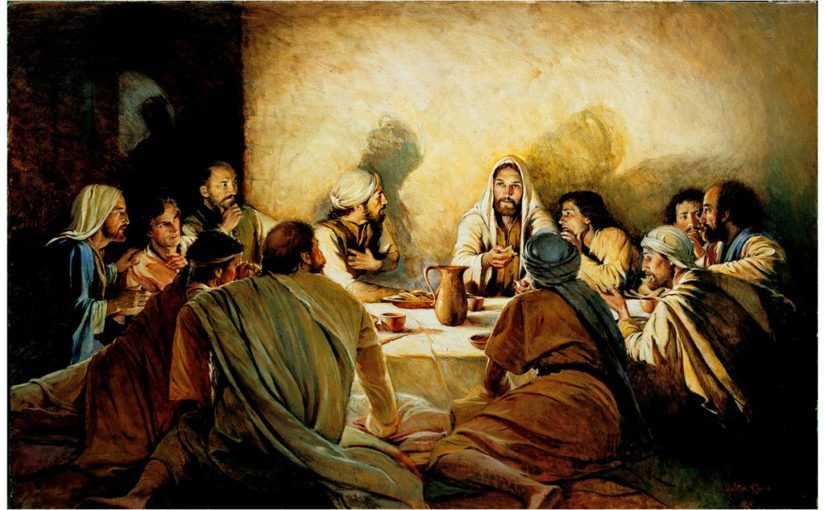
![Saint Bartholomew, Apostle [Feast]](https://father.mulcahy.net/wp-content/uploads/2018/08/saint-bartholomew-horiz-orig_orig.jpg)
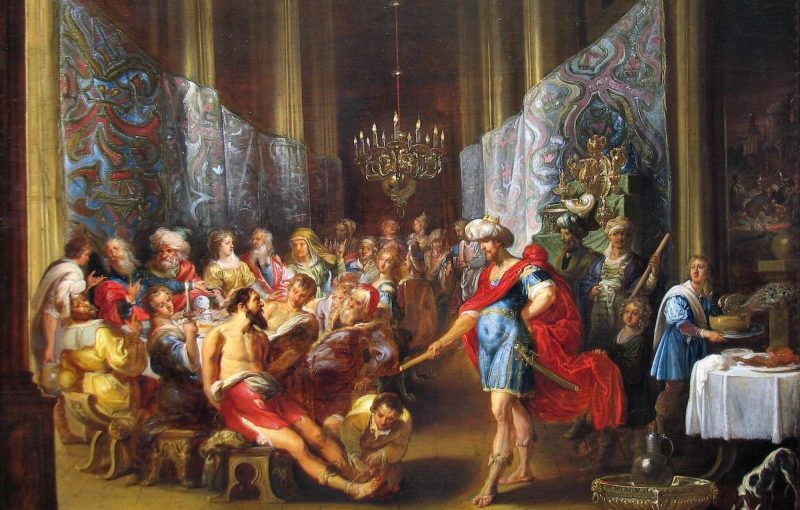
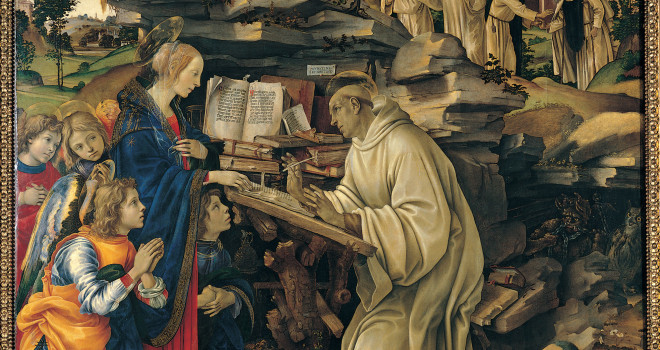
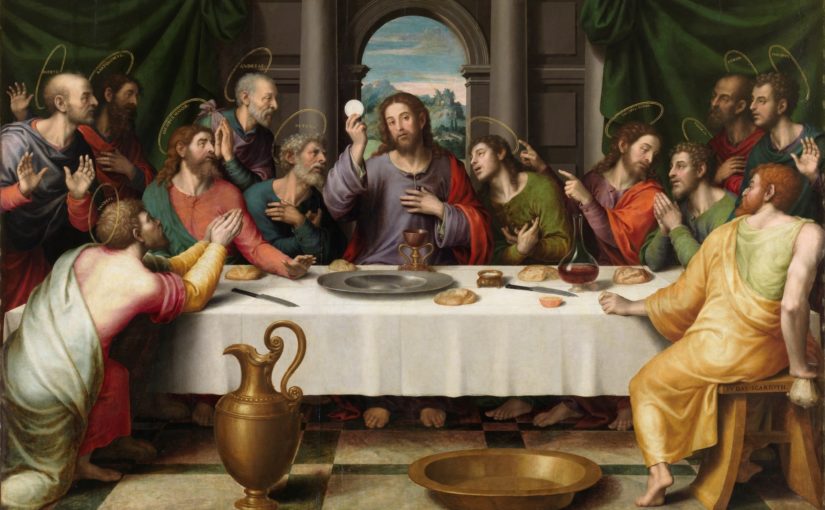
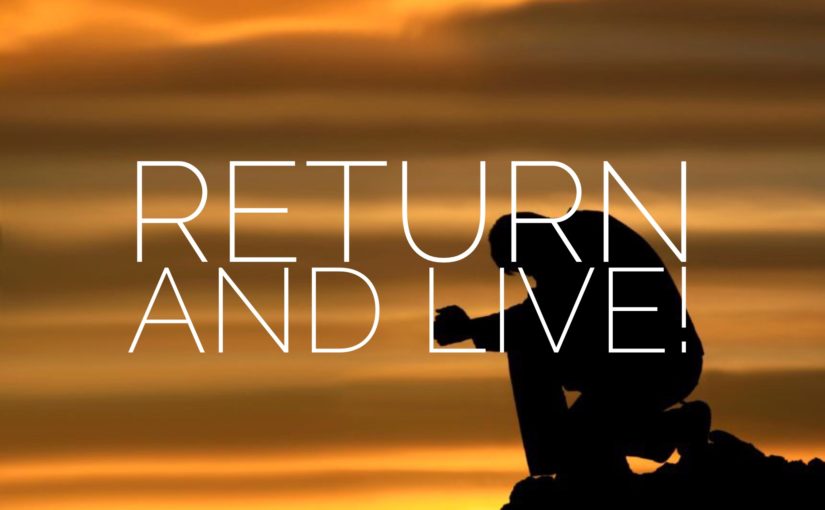
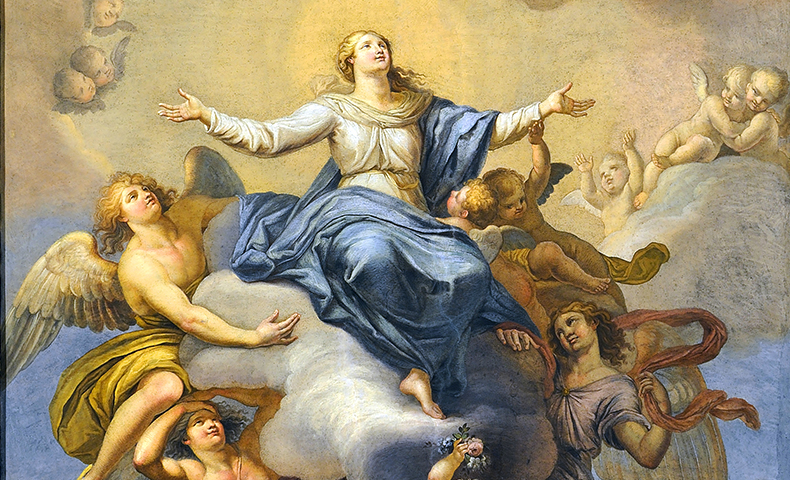
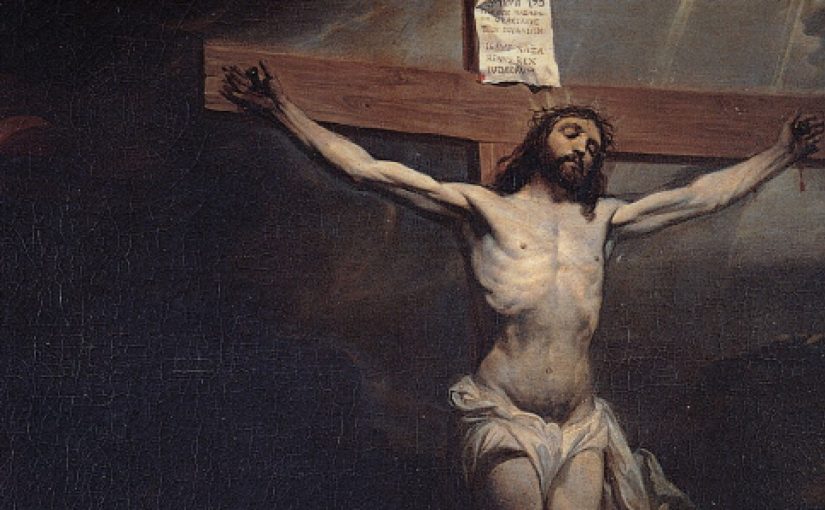
You must be logged in to post a comment.